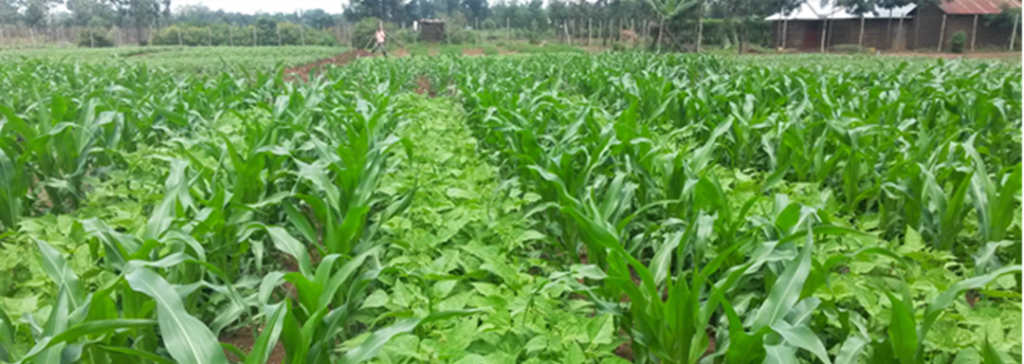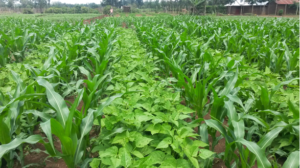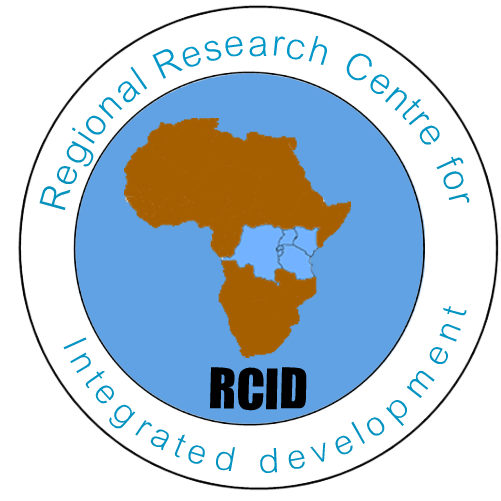
Duration: 2018-2019
RCID contact person: Philippe Rumenera (Email: prumenera@rcidcentre.com)
Sponsor: Agency for Cooperation and Research Development (ACORD), co-financed by Agence Française de France Development (AFD).
Sponsor’s Contact person and email: Munyetwali Francois, Country Director (e-mail. fmunyentwari@gmail.com)
ACORD Rwanda, in partnership with CCFD-Terre Solidaire, is implementing a Program of Transition towards rural agroecology at the Service of Food Sovereignty (TAPSA) for the period 2018 to 2021. Co-financed by Agence Française de France Development (AFD), it follows a first phase of 18 months that took place from 2016 to 2017 and which led to experiments based on agro-ecological practices aimed at restoring soil fertility, increase yields and test collective learning mechanisms with smallholder farmers in 4 districts. More specifically, to consider an annual agricultural growth of 7-8% and a continuity in the contribution of agriculture to the GNP, the use of mineral fertilizers, pesticides and other agricultural intensification technologies is unavoidable, especially on large areas consolidated for scale production. On the other hand, the addition of organic manure and the stabilization of agricultural land is also important for the sustainability of production ecosystems
 RCID has been contracted by ACORD Rwanda undertake the baseline study for this project that will contribute to sustainable food security through the mobilization and commitment of stakeholders in agricultural production to the transition towards agro-ecology. The baseline study was conducted in 8 districts of Rwanda and the scope was to identify current issues and practices, and possible options for integrating Agroecological practices in agricultural intensification program in Rwanda into commercial intensification programs.
RCID has been contracted by ACORD Rwanda undertake the baseline study for this project that will contribute to sustainable food security through the mobilization and commitment of stakeholders in agricultural production to the transition towards agro-ecology. The baseline study was conducted in 8 districts of Rwanda and the scope was to identify current issues and practices, and possible options for integrating Agroecological practices in agricultural intensification program in Rwanda into commercial intensification programs.
Study objective:
That is why this basic study wants to verify the two above-mentioned hypotheses by giving itself the following specific objectives:
- Identify current Agroecological practices (AEP) indicators in agricultural performance contracts and suggest improvements to existing indicators and propose new indicators to be integrated in planning, implementation and monitoring, and evaluation;
- Identify current AEPs in CIP programs, suggest improvements and propose new AEPs that can integrate intensive farming on consolidated land for greater stability and sustainability of agricultural land.
Expected results: The expected results from the study are:
This study was a tool for the transition to a peasant agro-ecology at the service of food sovereignty through the dissemination of ecological, autonomous and economic farming practices, institutional strengthening, systematization and development, initiatives of agricultural actors, advocacy for a collective understanding of the issues related to the social and ecological transformation of rural territories and their links with the economic field.
Smallholders farmers were adopted agro-ecological practices (AEPs) such as using mulching, composting, intercropping and rainwater management as well as natural pesticides as alternatives to the industrial model that favors the use of industrial inputs (fertilizers, seeds, pesticides), with negative effects on soil biological life and ecosystem degradation.
